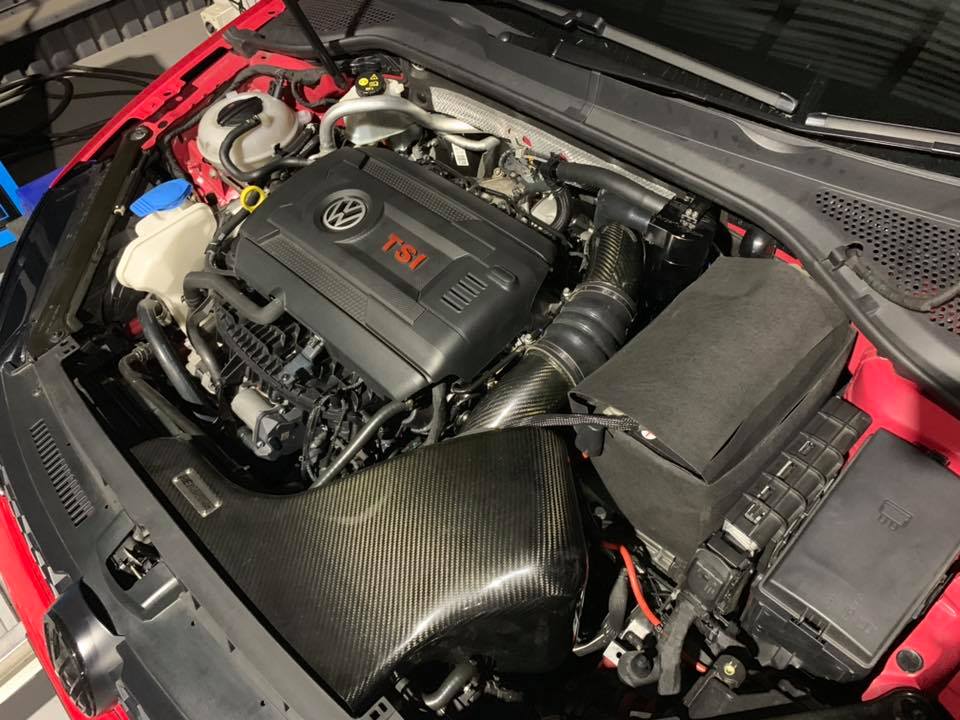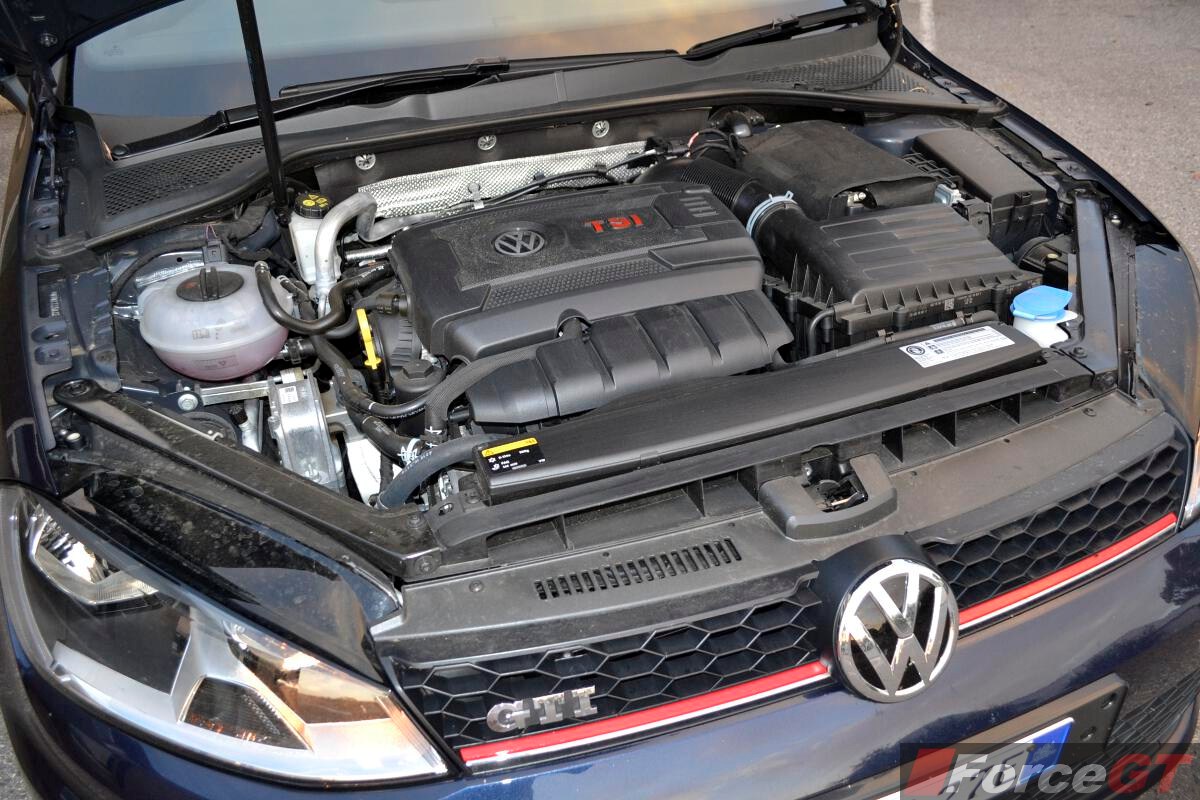Golf 7 GTI Engine Reliability: What You Should Know Before Buying
Golf 7 GTI Engine Reliability: What You Should Know Before Buying
Blog Article
Your Guide to the Golf 7 GTI Engine: Dependability and Upgrades
The Golf 7 GTI, outfitted with its 2.0-liter turbocharged inline-four engine, stands for an equilibrium of performance and reliability that allures to enthusiasts and day-to-day drivers alike. Recognizing the aspects that contribute to its dependability, along with prospective issues and their options, is vital for maximizing the driving experience. In addition, exploring various efficiency upgrades can considerably enhance both power and performance. The question continues to be: what particular upgrades can transform your GTI into an absolutely remarkable vehicle while guaranteeing its longevity?
Review of the Golf 7 GTI Engine
The heart of the Golf 7 GTI is its 2.0-liter TSI engine, a turbocharged four-cylinder that provides an outstanding mix of power and efficiency. This engine creates a robust 220 horse power and 258 lb-ft of torque, allowing the car to speed up from 0 to 60 mph in simply 5.6 secs, showcasing its stylish character. The turbocharged design not just boosts performance yet likewise optimizes fuel performance, making it a sensible choice for day-to-day driving.
Integrating sophisticated modern technology, the engine features direct gas injection, which enhances burning effectiveness and minimizes discharges. Furthermore, the Golf 7 GTI is equipped with either a six-speed manual or a six-speed DSG dual-clutch automated transmission, providing drivers with the flexibility to select their preferred driving design. The vehicle's front-wheel-drive layout, incorporated with a well-tuned suspension, makes certain dexterous handling and a responsive driving experience.
Engine Reliability Aspects
Dependability is a critical facet of any type of performance-oriented automobile, and the Golf 7 GTI's engine is no exception. A number of variables add to the general reliability of this very pertained to powerplant, which is important for both everyday driving and spirited efficiency.
First Of All, the Golf 7 GTI is outfitted with a durable 2.0-liter turbocharged inline-four engine, recognized for its reliable style and solid engineering. This engine features a built steel crankshaft and aluminum engine block, which supply premium stamina and sturdiness while reducing weight.
Second of all, regular upkeep plays a vital duty in enhancing engine integrity. Sticking to the maker's recommended service periods, utilizing premium lubricating substances, and replacing essential elements such as trigger plugs and filters can dramatically extend engine life.
Moreover, the top quality of gas utilized can likewise affect integrity. Premium gas is recommended to ensure optimal efficiency and decrease the risk of knocking or ignition.
Last but not least, the lorry's digital management system continually keeps an eye on engine specifications, permitting for real-time changes to maximize performance and efficiency while protecting versus prospective issues. Jointly, these elements underscore the Golf 7 GTI engine's reputation for reliability amongst lovers and daily vehicle drivers alike.
Typical Issues and Solutions
The Golf 7 GTI, while commemorated for its performance, is not without its difficulties. Among the most frequently reported concerns are engine oil consumption and turbocharger failings, which can significantly influence car reliability. Comprehending these common issues and their solutions is necessary for keeping optimal engine efficiency.

Engine Oil Intake
While several fanatics appreciate the performance of the Golf 7 GTI, engine oil intake can become a significant issue. Owners might observe that their automobiles need more constant oil top-ups than anticipated, typically credited to numerous elements inherent in the engine's style and procedure.
One typical concern is the engine's direct fuel shot system, which can lead to raised oil consumption as a result of the combustion process. In addition, using high-performance driving behaviors can intensify oil burn-off, particularly under hostile throttle problems. Drivers may likewise experience oil leakages from gaskets and seals, which can add to minimized oil levels.
Routine oil changes making use of top notch synthetic oil can assist maintain ideal engine efficiency and durability. If extreme consumption lingers, it might be recommended to consult an expert service technician to evaluate the engine for possible inner problems, such as worn piston rings or valve seals.
Turbocharger Failings
Turbocharger failures can significantly influence the efficiency of the Golf 7 GTI, leading to decreased power and efficiency. Oil leakages commonly stem from worn seals or harmed gaskets, which can lead to oil contamination and subsequent engine damages.
One more widespread issue is wastegate failing, which can lead to overboost or underboost conditions. If left untreated, this not just impacts the lorry's performance however can additionally lead to major engine damages. Updating to a more robust wastegate can boost reliability and efficiency.
Too much shaft play indicates wear in the turbocharger's bearings, which can lead to a full turbo failure. Keeping an eye on boost pressure and listening for uncommon noises can aid discover this issue early.
To prevent turbocharger failures, regular maintenance, including oil changes and air filter replacements, is important. In addition, buying top notch aftermarket parts might give better integrity and efficiency, eventually enhancing the driving experience of the Golf 7 GTI.
Efficiency Upgrades to Think About
What performance upgrades can absolutely raise the driving experience of a Golf 7 GTI? To release the full potential of this iconic warm hatch, a number of targeted alterations can boost power, taking care of, and total driving satisfaction.
Among the most effective upgrades is a high-performance turbocharger. Changing the stock system reference with an aftermarket choice can significantly boost horsepower and torque, supplying a much more exhilarating velocity experience. Enhancing this upgrade with a performance intercooler helps preserve optimal temperature levels, making sure regular power delivery.
Next, take into consideration updating the exhaust system. A much less limiting exhaust not just improves engine efficiency however additionally produces a more aggressive noise that intensifies the vehicle's flashy personality. Pairing this with a remapped ECU will enhance fuel distribution and ignition timing, more boosting performance.
Suspension upgrades, such as adjustable coilovers, can improve dealing with by reducing the automobile's facility of gravity and reducing body roll. In addition, a collection of high-performance tires will certainly boost grasp, permitting for sharper cornering and improved overall stability.
With each other, these upgrades can change the Golf 7 GTI right into an extra dynamic and exhilarating driving maker, making every journey an extraordinary experience. golf 7 gti engine.
Suggested Maintenance Practices
Maintaining the Golf 7 GTI engine calls for interest to essential practices that ensure ideal performance and long life. Routine oil changes are essential for engine wellness, while timely timing belt substitute is vital to avoid possible failures. Applying these maintenance methods will certainly assist keep your automobile running smoothly and successfully.
Regular Oil Adjustments
Routine oil modifications are important for the optimum performance and durability of the Golf 7 GTI's engine. Keeping a consistent oil change routine ensures that the engine operates smoothly and effectively. The suggested period for oil changes is normally every 5,000 to 10,000 kilometers, depending on driving conditions and the kind of oil made use of.
Using high-grade synthetic oil is vital as it provides superior lubrication and thermal security contrasted to standard oils. This is especially vital for the Golf 7 GTI, which features a turbocharged engine that produces greater operating temperatures. Regular oil changes help to remove impurities and sludge build-up, which can endanger engine performance and result in premature wear.
Furthermore, fresh oil enhances gas performance and minimizes unsafe discharges, adding to a cleaner atmosphere. Throughout the oil adjustment procedure, it is additionally a good idea to replace the oil filter to ensure optimum filtration and protect against any type of particles from going into the engine. Abiding by these practices not just helps maintain the engine's stability yet also protects the worth of the car, making normal oil changes an essential aspect of liable GTI possession.
Timing Belt Replacement
The timing belt is a vital element of the Golf 7 GTI's engine, liable for synchronizing the rotation of the crankshaft and camshaft. This synchronization is important for ideal engine efficiency and performance. If the timing belt fails, it can result in disastrous engine damages, making prompt replacement essential.

When planning a timing belt replacement, it is suggested to likewise change the water pump and tensioner. These parts operate in conjunction with the timing belt and often experience similar wear, making certain optimal performance and durability. Using OEM parts is suggested for their integrity and compatibility with the Golf 7 GTI's engine.
Professional installation is highly encouraged, as inappropriate installment can lead to severe engine malfunctions. Regular maintenance of the timing belt not only protects the integrity of the engine yet additionally boosts the total driving experience of the Golf 7 GTI. golf 7 gti engine. Prioritizing this task assists preserve vehicle dependability and efficiency gradually
Aftermarket Parts and Modifications
Numerous fanatics transform to aftermarket modifications and components to boost the performance and appearances of the Golf 7 GTI. These upgrades can significantly boost the vehicle's responsiveness, taking care of, and general driving experience. Popular modifications consist of high-performance air intakes, exhaust systems, and intercoolers, which can increase horse power and torque by optimizing air consumption and exhaust flow.
Suspension upgrades are also widespread, with choices ranging from reducing springtimes to fully have a peek here flexible coilover kits that boost experience top quality and cornering capability. Upgraded brakes, consisting of performance pads and rotors, can offer far better stopping power, making sure security and control throughout spirited driving.
Visual modifications, such as aftermarket wheels, body kits, and custom-made illumination, allow owners to individualize their cars while preserving a stylish look. Engine tuning, whether via ECU remapping or standalone engine management systems, can open added efficiency capacity, making the GTI even extra exhilarating to drive.
While aftermarket alterations can yield considerable benefits, it's important to choose credible brand names and think about the possible impact on guarantee and dependability. Proper installment and tuning are crucial to make sure the durability of the car while taking pleasure in the enhancements.
Enhancing Gas Performance
Improving fuel effectiveness in the Golf 7 GTI can result in significant price financial savings and a minimized environmental influence. Achieving much better fuel economic climate needs a combination of driving habits, upkeep methods, and strategic modifications.
One efficient method is taking on a smooth driving style, avoiding rapid velocity and heavy braking, which can substantially minimize gas consumption. Keeping optimum tire stress is also critical; under-inflated tires can raise rolling resistance, leading to lowered performance. Normal maintenance, consisting of engine adjusting and air filter replacements, makes from this source certain that the engine runs at peak efficiency, even more improving gas economy.
For those seeking upgrades, take into consideration a performance song that concentrates on efficiency as opposed to sheer power. Eco-mode settings, if offered, can adjust throttle reaction and change indicate make the most of gas savings. Furthermore, lightweight aftermarket wheels can decrease weight and boost efficiency without compromising efficiency.
Finally, employing wind resistant improvements, such as a front splitter or back spoiler, can minimize drag at higher rates, adding to far better gas economic climate. By implementing these methods and modifications, Golf 7 GTI owners can appreciate improved gas performance while preserving the vehicle's perky driving features.
Conclusion
In verdict, the Golf 7 GTI engine exhibits a mix of performance and dependability, driven by a well-engineered 2.0-liter turbocharged inline-four. Different performance upgrades and aftermarket modifications can boost driving experience while preserving dependability.
The Golf 7 GTI, geared up with its 2.0-liter turbocharged inline-four engine, stands for an equilibrium of performance and reliability that appeals to lovers and everyday drivers alike. Regular oil modifications using high-quality artificial oil can help keep optimum engine performance and long life.Regular oil adjustments are crucial for the ideal performance and long life of the Golf 7 GTI's engine. Routine servicing, including engine adjusting and air filter replacements, makes sure that the engine runs at peak performance, better enhancing fuel economy.

Report this page